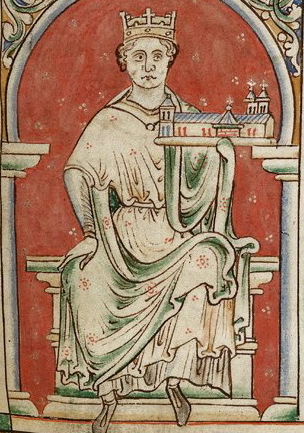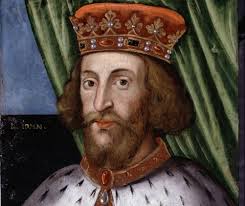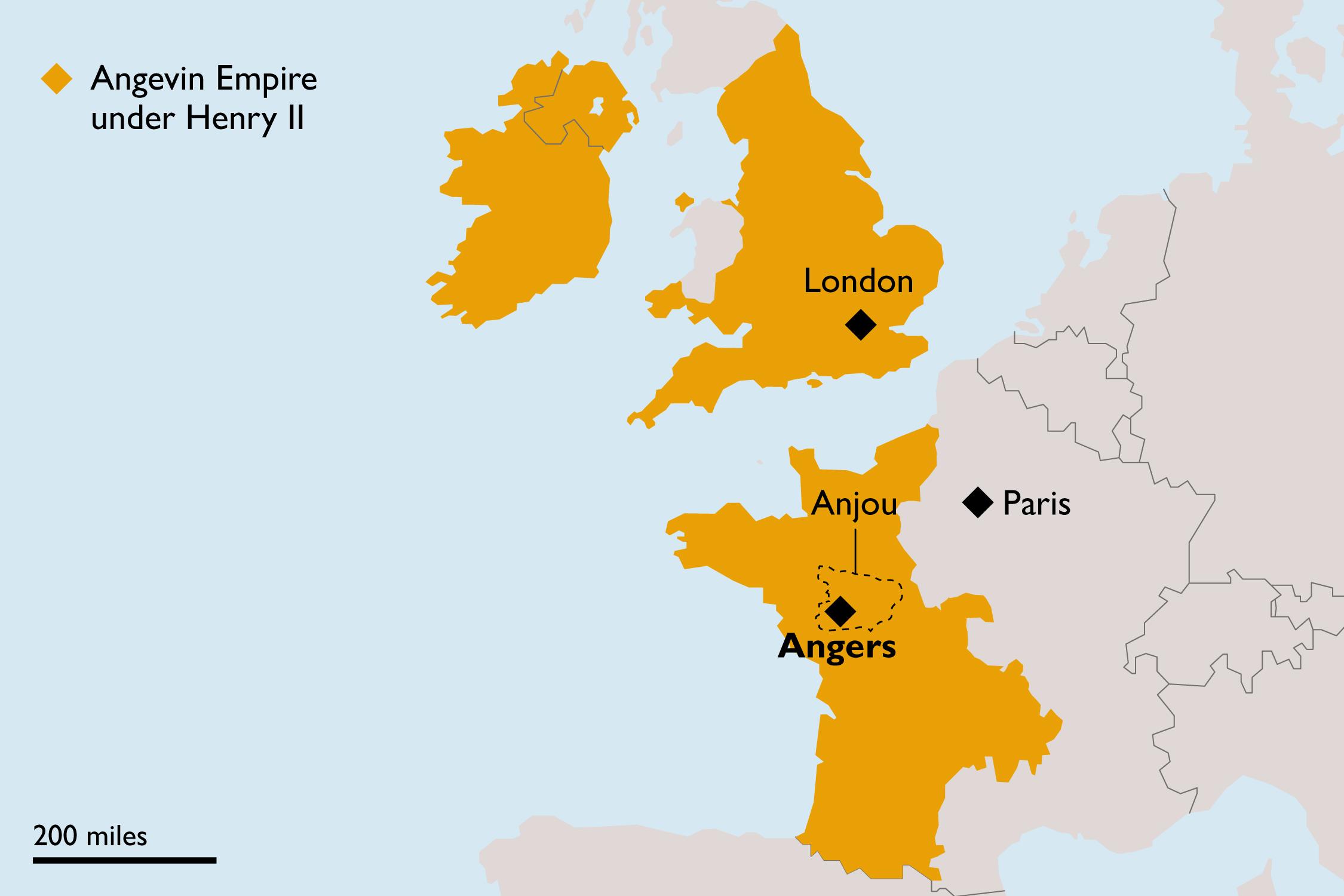On t he 27th of May 1199, John Plantagenet was crowned King of England at Westminster Abbey.
he 27th of May 1199, John Plantagenet was crowned King of England at Westminster Abbey.
John was the last child of the illustrious King Henry II and the legendary Eleanor of Aquitaine. When he was born on Christmas Eve of 1167 at Beaumont Palace in Oxfordshire, King Henry, his father, jested that as he already had several boys, there was no land left to give John, so the prince was jokingly nicknamed Sans Terre or Lackland. It was an ironic twist of fate that after all the sons of Henry and Eleanor had passed away, John eventually inherited the entire Angevin Empire.
At the time of John’s coronation, there were two rival claimants for the Angevin throne. Obviously, the first man was John, whose claim was based on him being the sole surviving son of King Henry II. The other was Arthur Plantagenet, the posthumous son of Geoffrey II, Duke of Brittany; his claim rested on him being the only son of Geoffrey, John’s elder brother. Norman law favored John as the only surviving son of the old king. However, by strict primogeniture, it should have been Arthur, as he was the son of the middle brother Geoffrey, who was older than John.
The famous William Marshal, Earl of Pembroke, and Hubert Walter, Archbishop of Canterbury and Chief Justiciar of England, were instrumental in persuading the English lords to accept John as their sovereign. Their main argument in favor of John was that he was born in England and knew more of their country and nation, while Arthur was being raised in Brittany by his mother Constance, who was disliked by Eleanor of Aquitaine and who might have been hostile towards her husband’s family. Needless to say, John was also backed by his mother, Eleanor.
For some time, King Richard hesitated as to who to make his heir – his younger brother, John, or his nephew, Arthur. In 1190, Arthur was designated heir to the English throne and the continental Angevin territories. In 1196, Constance had her nine-year-old son proclaimed Duke of Brittany and her co-ruler. Then Richard summoned Arthur and his mother to Normandy so the boy could be raised by his Plantagenet relatives, but on the journey Constance was captured by her second husband, Ranulph de Blondeville, Earl of Chester. As a result, Arthur was secretly taken to France and placed in the custody of King Philip II, becoming a French pawn in his crafty hands. 
Nevertheless, Arthur could have remained Richard’s heir, were it not for the king’s untimely death. After Richard had been shot by the vengeful crossbowman in Limousine, Eleanor was at her favorite son’s side as he was gradually succumbing to gangrene. She acted as a witness when Richard named John as his heir on his deathbed. Perhaps Eleanor convinced the dying monarch to do so, or it might have been down to John’s older age – John was a grown man while Arthur was only 12 years old.
However, King Philip II of France immediately proclaimed Arthur as the rightful heir to the Angevin Empire, totally ignoring Richard’s wishes. Anjou, Maine, and Touraine all declared for Arthur, leading to war in the region against the forces of John and Eleanor. Arthur witnessed several sieges on his behalf, but in the end, he was evacuated to Paris for his safety. Later, Arthur began to doubt that the cunning ruler of France would allow him to gain full control over the vast Angevin Empire when he came of age, so Arthur fled to King John’s court together with his mother.
Yet, it was as if fate played with Arthur and Constance in the cruelest games. The mother and her son never met with John, because their envoys did not manage to secure for them an audience with the King of England. Consequently, Arthur and Constance escaped back to an incensed Philip. And as the peace talks between John and Philip, followed, Arthur was not allowed to participate.
After Constance’s death in 1201, King Philip goaded Arthur into action: the young man launched an invasion against Poitou, and his army besieged Eleanor of Aquitaine in Château de Mirabeau for some time. John rescued his mother and imprisoned Arthur at Château de Falaise in Normandy. All that is known about Arthur’s further fate is that he was never seen again after 1203. The legend is that John murdered his rival in a drunken rage, but it cannot be proved with certainty. Like the princes in the Tower several centuries later, Arthur’s final resting place was never revealed.
So, over the years, John became undisputed King of England. However, at the time of his coronation, nobody could predict that the reign of King John would be a story of great failure. No one knew that John would be the last of the Angevin monarchs, the one who would fail miserably to hold onto the Angevin continental lands, including Aquitaine, Poitou, Anjou, and Normandy, and the one whose struggle with his own baronage would drive his subjects to impose the Magna Carta upon him.
All images are in the public domain.
Text © 2019 Olivia Longueville






